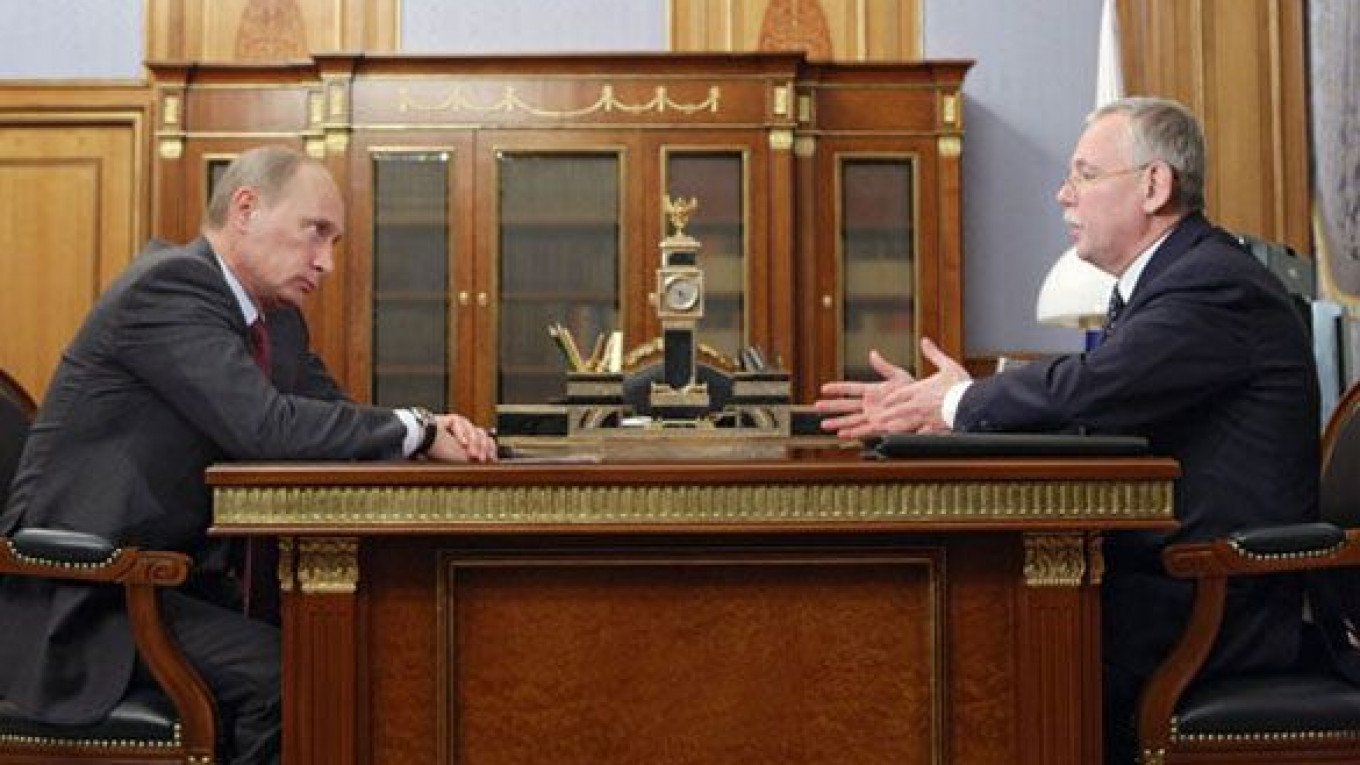The former head of the Leningrad region assembly was nominated Tuesday to become governor of the Karelia republic, a move seen as another attempt to replace a regional governor before direct gubernatorial elections go into effect this fall.
Alexander Khudilainen, 57, was nominated by President Vladimir Putin to become the acting head of the Karelia republic, a tourism hot spot bordering Finland, after the previous governor, Andrei Nelidov, resigned, it was announced on the presidential website.
Nelidov, who was nominated in 2010 by then-President Dmitry Medvedev to head Karelia, was considered among the least open of regional leaders.
According to a gubernatorial survival rating list recently prepared by the St. Petersburg Politics think tank, Nelidov had almost no chance of keeping his position.
Some local bloggers discussing Nelidov's departure pointed out that as he hailed from the Leningrad region, he had no ties to the local elite and was unable to establish a relationship with them.
"I am not strong in politics, but it looks like they believe Petersburg bureaucrats are better than local ones," said one blogger in a comment posted on Vesti Karelia.
While some experts noted that Khudilainen has Finnish ancestry and speaks Finnish — a positive sign for investors — regional analyst Alexander Kynev said his ties to the Leningrad region would play an important factor.
"Karelia is seen as a development zone for Leningrad region politicians," said Kynev, referring to the region connected to St. Petersburg and home to a pro-Putin political elite.
If his nomination is approved, Khudilainen would be taking over a region struggling with ethnic tensions between locals and North Caucasus migrants.
In 2006, a domestic dispute in the city of Kondopoga led to widespread ethnic violence that was fueled by nationalist sentiments.
Khudilainen indicated earlier that he holds a more supportive position toward migrants and welcomed them to work in the Leningrad region's agriculture industry.
"The majority of migrants don't drink," he told Fontanka.ru in 2011.
A Message from The Moscow Times:
Dear readers,
We are facing unprecedented challenges. Russia's Prosecutor General's Office has designated The Moscow Times as an "undesirable" organization, criminalizing our work and putting our staff at risk of prosecution. This follows our earlier unjust labeling as a "foreign agent."
These actions are direct attempts to silence independent journalism in Russia. The authorities claim our work "discredits the decisions of the Russian leadership." We see things differently: we strive to provide accurate, unbiased reporting on Russia.
We, the journalists of The Moscow Times, refuse to be silenced. But to continue our work, we need your help.
Your support, no matter how small, makes a world of difference. If you can, please support us monthly starting from just $2. It's quick to set up, and every contribution makes a significant impact.
By supporting The Moscow Times, you're defending open, independent journalism in the face of repression. Thank you for standing with us.
Remind me later.






